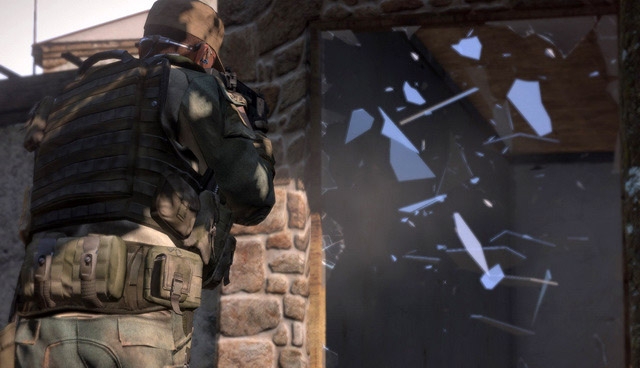Essential Leadership Principles
Leadership in Arma enables squads and platoons to work effectively. This section refreshes and introduces leadership concepts for those currently leading or aspiring to lead. Arma leadership involves
Survival
Leaders should prioritize their own survival, especially at higher levels of command where they are less expendable. This means avoiding unnecessary risks and not drawing attention from the enemy. As a leader, your best weapons are the players under your command, and they rely on you to keep them alive. Putting yourself in danger recklessly jeopardizes their safety and puts the mission at risk. Therefore, it's important to act in a way that minimizes risk and keeps both yourself and your team safe.
Knowledge
It's important to have knowledge of the roles of both your immediate superior and the leader below you. This enables you to effectively command their troops and assume their role in case of their incapacitation. Additionally, knowing the role of the leader above you allows you to be prepared to take over if necessary.
Clarity
Clear and concise communication is crucial in a battle. Giving simple and easy-to-understand orders can help team members focus on their tasks and achieve success. Lengthy and wordy orders can be difficult to understand and may cause problems in a firefight where everyone is already dealing with multiple tasks.
Decisiveness
In high-pressure situations like combat, there may not be enough time to come up with a perfect plan. It's better to make a good decision quickly and put it into action than to spend a lot of time perfecting a plan. "A good plan now is better than a perfect plan later." Delaying decision-making can put you at a disadvantage during combat. Therefore, it's important to make quick decisions and take action.
Task by name
Giving vague orders like "someone needs to" can lead to confusion and be ignored during battle. It's more effective to assign specific tasks to individuals in your team, using their names, color codes for buddy teams, or callsigns for units. For example, "Madcows, retrieve the AT from Awo's corpse" or "Oakley, man the .50cal on kevb0's MRAP." Directly tasking individuals will lead to faster and clearer execution of tasks with less ambiguity and confusion.
Micro-management
Leaders should avoid micromanaging and instead give orders that allow subordinates to execute tasks in the way they think is best. Strictly dictating how an element should move and enforcing it can be dangerous and limit tactical flexibility, which is crucial for lower-level leaders to get their jobs done effectively. It's better to provide guidelines, such as a destination and set waypoints, and allow subordinates to adapt to the situation as they see fit. Micromanagement should be avoided as it can stifle tactical flexibility and lower-level leadership, except in exceptional cases.

Tactical patience
Tactical patience means allowing a situation to develop and unfold before determining its significance and how to react. In Arma, there may be times when leaders need to wait and observe the situation instead of jumping in and giving orders prematurely. For example, seeing a few infantrymen approaching from one flank doesn't necessarily mean that the bulk of the attack will come from there. It's wiser to wait and gather more information before shifting defenses or making decisions.
Disciplined initiative
Disciplined initiative is crucial for leaders at all levels. It means having the ability to exercise initiative in a way that aligns with the higher commander's intent. Leaders are expected to make good decisions independently when the situation calls for it, without having to seek permission from higher-ups. This demonstrates trust in junior leaders and gives them the freedom to adapt to changing situations quickly.
Pen & Paper
Using a pen and paper for note-taking is recommended for all players, especially leaders. It allows players to take notes as needed, including special information that may be needed later in the mission, rules of engagement, formations, timings for events, and more. Note-taking is also useful for recording significant events during the mission, which can be used for "lessons learned" or for highlighting commendable actions during the after-action review.

Last updated
Was this helpful?
